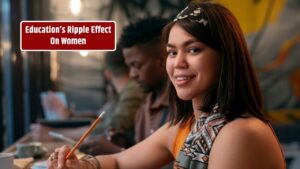For many women, turning 40 doesn’t signal slowing down—it sparks a new beginning. Kids might be older, careers may feel stagnant, or long-set dreams start knocking again. That’s where lifelong learning comes in. Whether it’s finishing a degree, switching careers, or taking up leadership training, women over 40 are proving that education isn’t bound by age. In fact, its impact can be even more powerful later in life, reshaping not just individual futures but entire communities.
Redefining Career Paths
Plenty of women reach 40 and realize the job they once settled into no longer fits. Returning to school—through graduate programs, certifications, or online learning—opens doors to new careers. According to Universities Canada, continuing education and flexible programs have become vital pathways for adults looking to re-skill in today’s shifting economy. For women, this can mean breaking into fields they once thought were closed off.
Building Confidence and Leadership
Lifelong learning builds more than technical knowledge—it rebuilds self-confidence. Women who step back into the classroom often discover leadership potential they never tapped earlier. Programs like CFUW fellowships emphasize not just academic advancement but also leadership, encouraging women to become mentors and community advocates.
Expanding Social and Professional Networks
At 40 and beyond, many women are also seeking community. Education creates new networks—study groups, alumni circles, professional associations—that can be just as transformative as the courses themselves. These relationships often lead to collaborations, job opportunities, and friendships that enrich life well beyond the classroom.
Challenging Age and Gender Stereotypes
Enrolling in higher education at midlife directly challenges the stereotype that learning (or ambition) has an age limit. Women over 40 are role models for younger generations, proving that curiosity, ambition, and personal growth don’t fade with age. This ripple effect inspires daughters, coworkers, and communities alike.
Health and Well-Being Benefits
Studies show lifelong learning is linked to better mental agility, emotional resilience, and even physical health. For women balancing the pressures of work, caregiving, and community roles, education can be a powerful form of self-investment and empowerment.
At a Glance: Why Lifelong Learning Matters After 40
| Impact Area | Benefits for Women Over 40 |
|---|---|
| Career reinvention | Opens new job and leadership opportunities |
| Confidence & identity | Strengthens self-worth and resilience |
| Networks & community | Builds meaningful professional and social ties |
| Breaking stereotypes | Challenges age and gender barriers |
| Health & well-being | Improves mental agility and life satisfaction |
Lifelong learning isn’t about chasing grades—it’s about embracing growth. For women over 40, the classroom becomes a launchpad for reinvention, empowerment, and influence. Education at this stage doesn’t just change lives—it redefines what’s possible.
FAQs
Why do many women return to education after 40?
To re-skill, pivot careers, pursue long-delayed goals, or simply to grow personally and professionally.
Is it harder to balance education with life responsibilities at this age?
Yes, but flexible programs, online courses, and family support make it more feasible than ever.
Do scholarships exist for women over 40?
Yes—programs like CFUW fellowships and university continuing education grants often support mature students.




